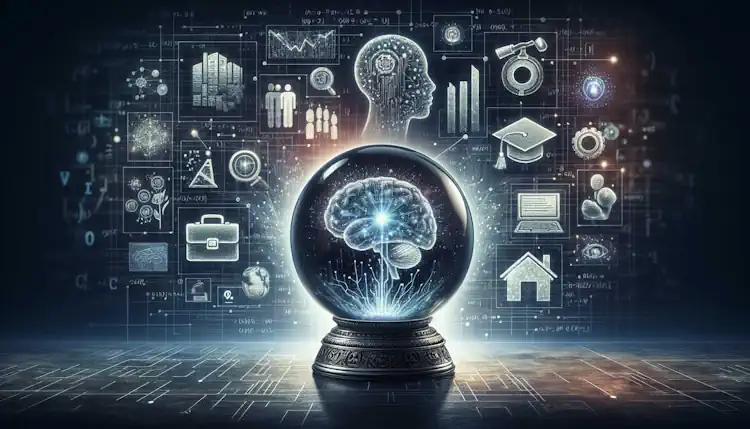Table of Contents
The Power of Predictive AI
In a groundbreaking study, researchers have tapped into the predictive powers of artificial intelligence, uncovering its potential to forecast life events with remarkable precision. By feeding AI systems with extensive data on personal aspects such as residence, education, income, health, and working conditions, these digital prognosticators are now able to make educated guesses about future occurrences in an individual’s life.
Language Models Turned Life Predictors
Language processing AIs, similar to the well-known ChatGPT, are at the forefront of this technological breakthrough. These transformative models, trained with vast amounts of personal data, can systematically organize information and anticipate life events, including estimating an individual’s lifespan. The AI’s predictions respond to queries like “What is the chance of death within four years?” with a consistency that aligns with existing research findings.
AI’s Accuracy Echoes Human Patterns
Life2vec, the predictive model, has demonstrated that it can mirror the complexities of human life, which, much like a sentence, is composed of a series of events. The AI’s effectiveness is rooted in its original design for language tasks, enabling it to apply the same principles to the sequence of life events. For instance, it has been found that individuals in leadership roles or with higher incomes have a better chance of survival, while those with mental health diagnoses face increased mortality risks. Check out the Life2vec Death Calculator.
Ethical Considerations in the Spotlight
Despite the promising capabilities of the Life2vec model, researchers are quick to highlight the ethical dilemmas it presents. Issues such as data confidentiality, privacy, and potential biases must be addressed before this technology can be widely adopted, for example, in assessing disease risks or other significant life events.
From Social Media to Life Milestones
Similar AI technologies are already in play within tech companies, which analyze social media behavior to tailor hyper-targeted advertisements. The scientific community is calling for a democratic dialogue to navigate the implications of these advancements and to decide whether this is a path society wants to pursue.
Blending Social Science with Health Through AI
As the research progresses, the next phase involves enriching the AI model with diverse data types, including text, images, and social network information. This integration promises to forge a new bond between social sciences and healthcare, potentially revolutionizing how we understand and interact with the world around us.


